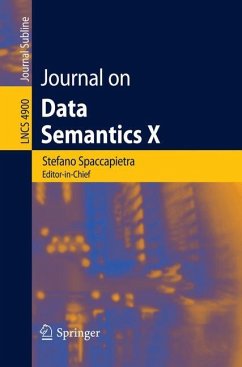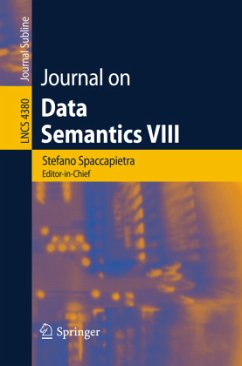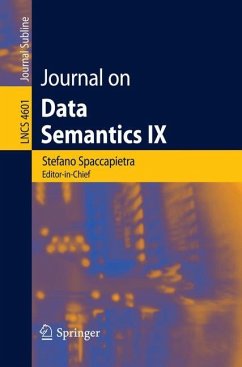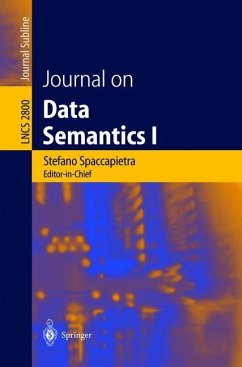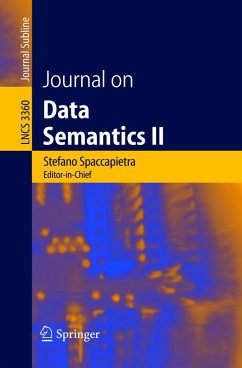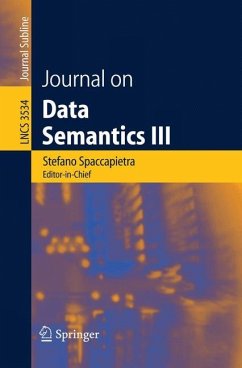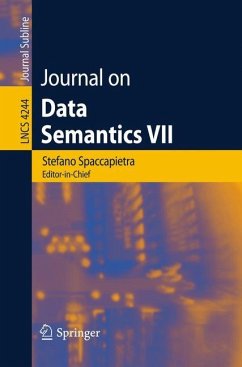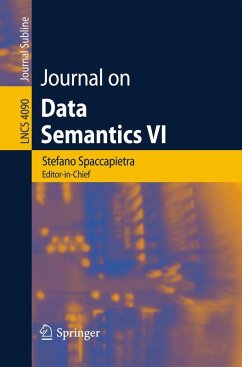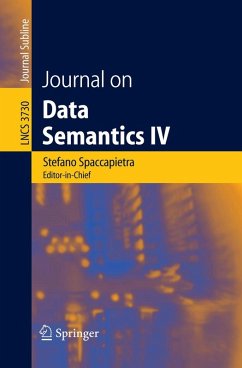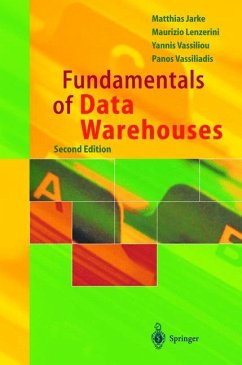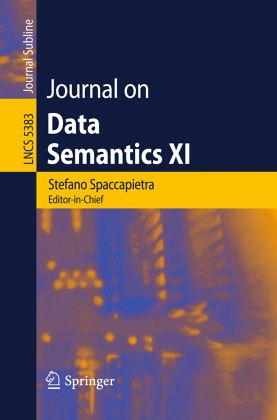
Journal on Data Semantics XI

PAYBACK Punkte
19 °P sammeln!
Papers were invited based on their quality, relevance and significance, and the - ability of extending their results. Extended versions prepared by authors were subject to the traditional two-round scholarly review process, and the authors were required to respond to all concerns expressed by the reviewers before papers were accepted. Eight papers were eventually accepted for publication in this issue. The selection of SWESE best papers eventually resulted in the acceptance of two papers. The first paper "Experiences in the Design of Semantic Services Using Web En- neering Methods and Tools," ...
Papers were invited based on their quality, relevance and significance, and the - ability of extending their results. Extended versions prepared by authors were subject to the traditional two-round scholarly review process, and the authors were required to respond to all concerns expressed by the reviewers before papers were accepted. Eight papers were eventually accepted for publication in this issue. The selection of SWESE best papers eventually resulted in the acceptance of two papers. The first paper "Experiences in the Design of Semantic Services Using Web En- neering Methods and Tools," by Brambilla, Ceri, Celino, Cerizza, Della Valle, Facca, Turati, and Tzviskou, shows how classical software engineering methods (such as formal business process development and automatic code generation) combine with semantic methods and tools (i.e., ontology engineering, semantic service annotation and discovery) to forge a new approach to software development for the Semantic Web. In the paper, the authors present their experience in the participation to the - mantic Web Service Challenge 2006, where the proposed approach achieved very good results in solving the proposed problems. The second paper "Automatically Generated Model Transformations Using Ont- ogy Engineering Space," by Roser and Bauer, presents an approach to using the - mantic technologies to improve cross-organizational modeling by automated gene- tion of model transformations. By automated generation of mappings it offers new possibilities for the integration of domain specific languages and 'legacy' models in a plug&play manner, making it easier for new organizations to join collaborations.



